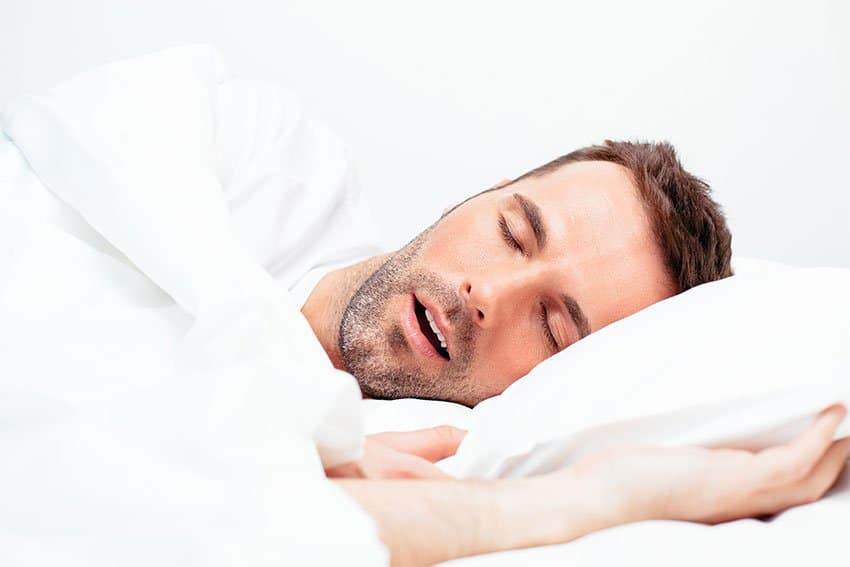7 Possible Causes of Snoring

1. Older Age
You may not have snored in your youth but as you climb in age, maybe you’ve developed a nightly snoring habit. This isn’t unusual. It’s actually common for snoring to worsen with age. This is due to several contributing factors including:
- Loss of Muscle Tone
- Medications
- Weight Gain
- Hormonal Changes (Menopause)
As you age, your muscles begin to lose their tone. This also includes the muscles in your upper airway. As they lose their tone, the soft palate becomes even more susceptible to vibration that causes snoring. It can also obstruct the airway which can cause sleep apnea. In addition to the loss of muscle tone, certain medications can also cause the muscles to relax which will contribute to snoring. Weight gain and the changes of hormones can also have an impact on the upper airway and contribute to snoring.
2. Sleep Style
3. Nose and Throat Conditions
4. Excessive Weight
5. Medications & Alcohol
6. Anatomy
7. Sleep Apnea
The last and most common cause of snoring is sleep apnea. Sleep apnea is a serious sleep disorder that occurs in nearly 22 million Americans and has snoring as one of it’s most common side effects. When someone has obstructive sleep apnea, their airway becomes obstructed while they sleep. The obstruction causes them to stop breathing which alerts the brain to choke or cough to catch their breath. During this time, the person will wake up although they usually have no memory of the event. This process will repeat itself repeatedly throughout the night.
After waking up, people often experience symptoms such as:
- Headaches
- Waking up with a sore throat or dry mouth
- Feeling tired throughout the day
- Inability to concentrate
- Poor memory
- Mood problems
In addition to it’s life-altering symptoms, sleep apnea can also increase health risks for heart attacks, stroke, diabetes, hypertension and other serious conditions. The only way to reduce your risk is to get sleep apnea treatment.
Get Sleep Apnea and Snoring Treatment in Tulsa, OK
If you have sleep apnea or you snore on a nightly basis, our dental office in Tulsa, OK can help you find an effective snoring treatment. We first recommend taking a home sleep test to find out if you have a sleep disorder. After the diagnosis, we can provide you with oral appliance therapy which is a CPAP alternative that will help you stop snoring at night and finally get a good night’s rest. Oral appliances rest in the mouth comfortably just like a night guard.
Contact our Tulsa sleep dentist at (918) 528-3330 to book an appointment today.

élan Tulsa Cosmetic Dentistry
10031 S Yale Ave #104
Tulsa, OK 74137

